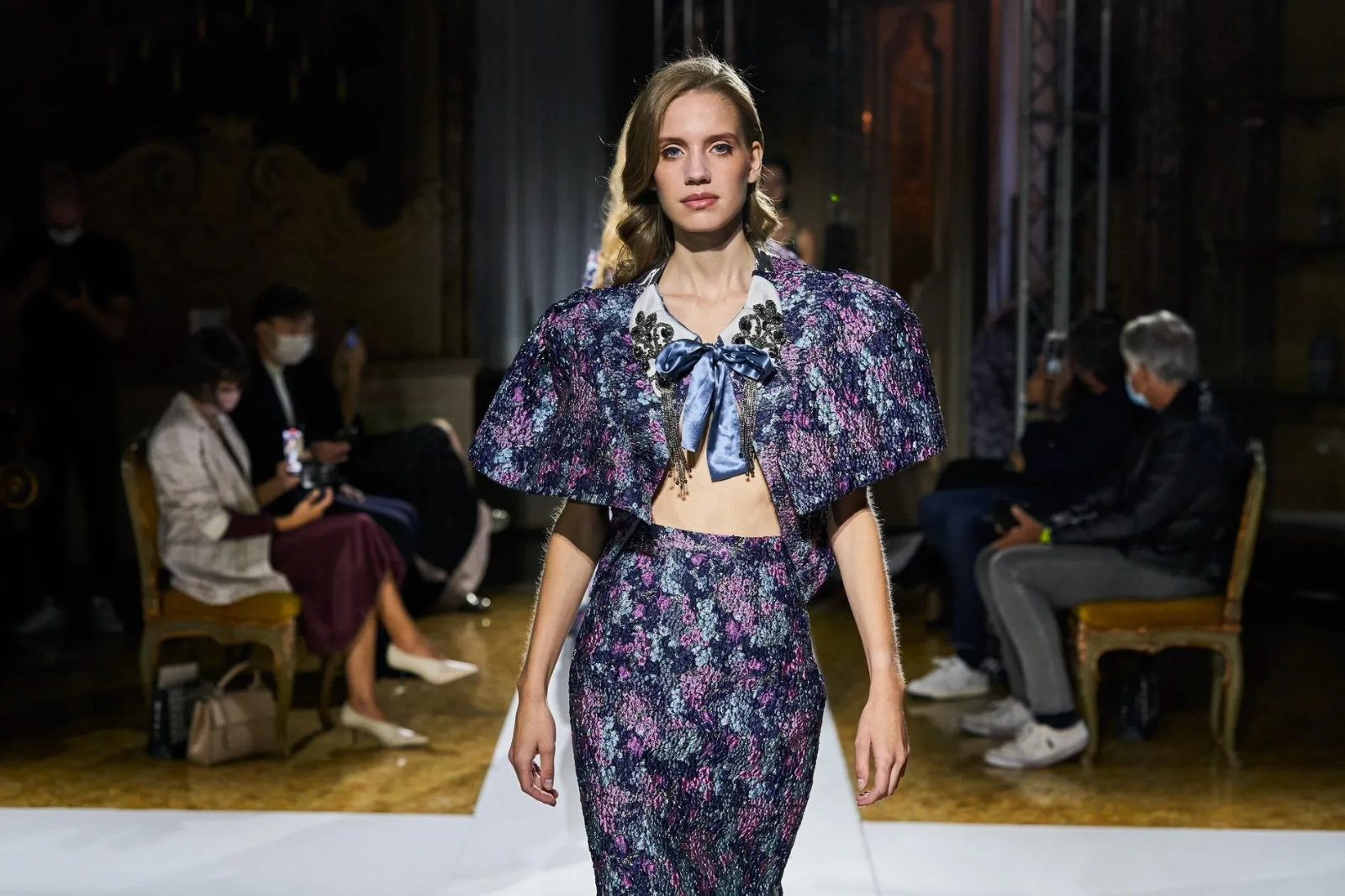
FASHION A former US Marine who learned to use an industrial sewing machine when he was five years old, Uriel Saenz has not had the typical career trajectory of many fashion names. Yet he has undeniably found success, shown in cities around the world, and proudly promotes social issues that are close to him. Jack Yan interviews the Los Angeles-based designer
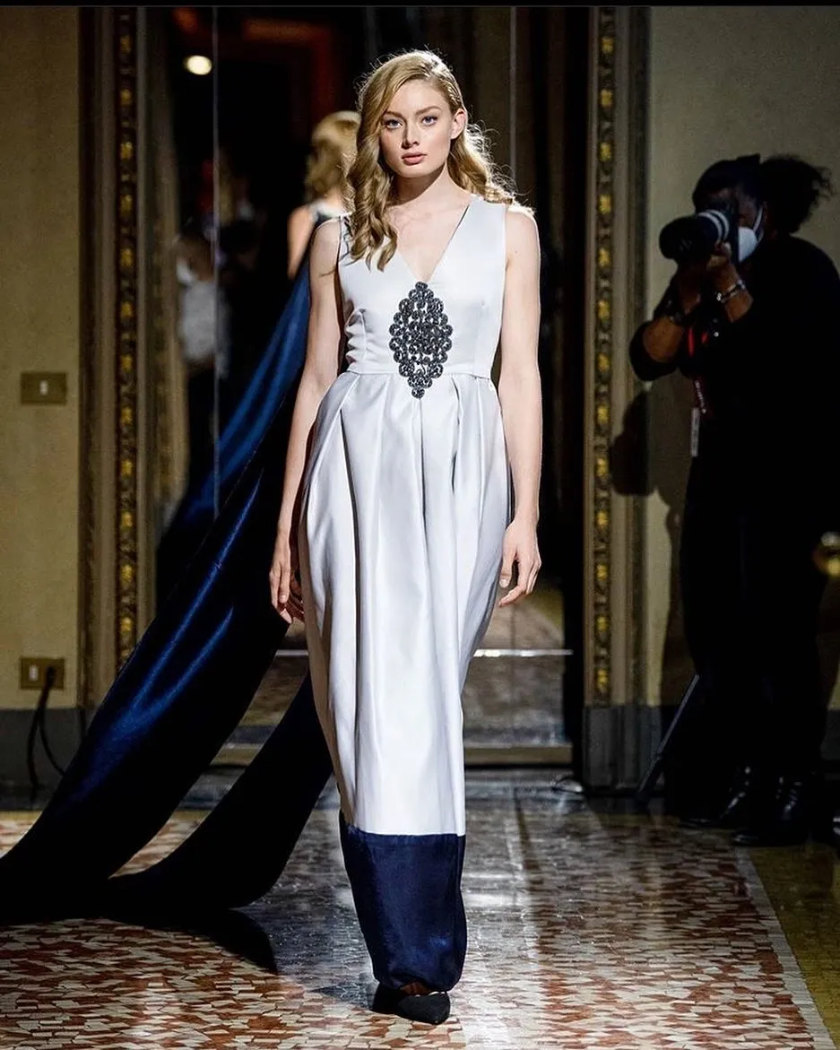
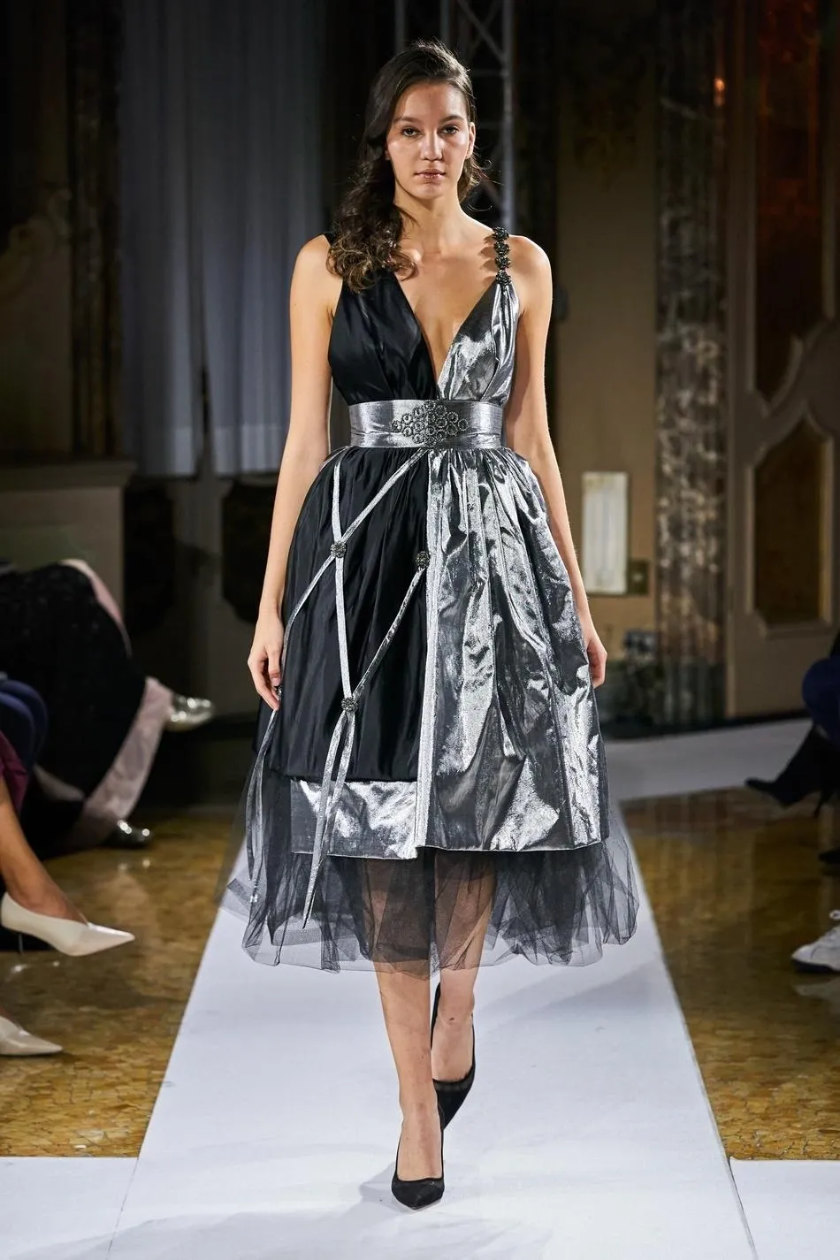
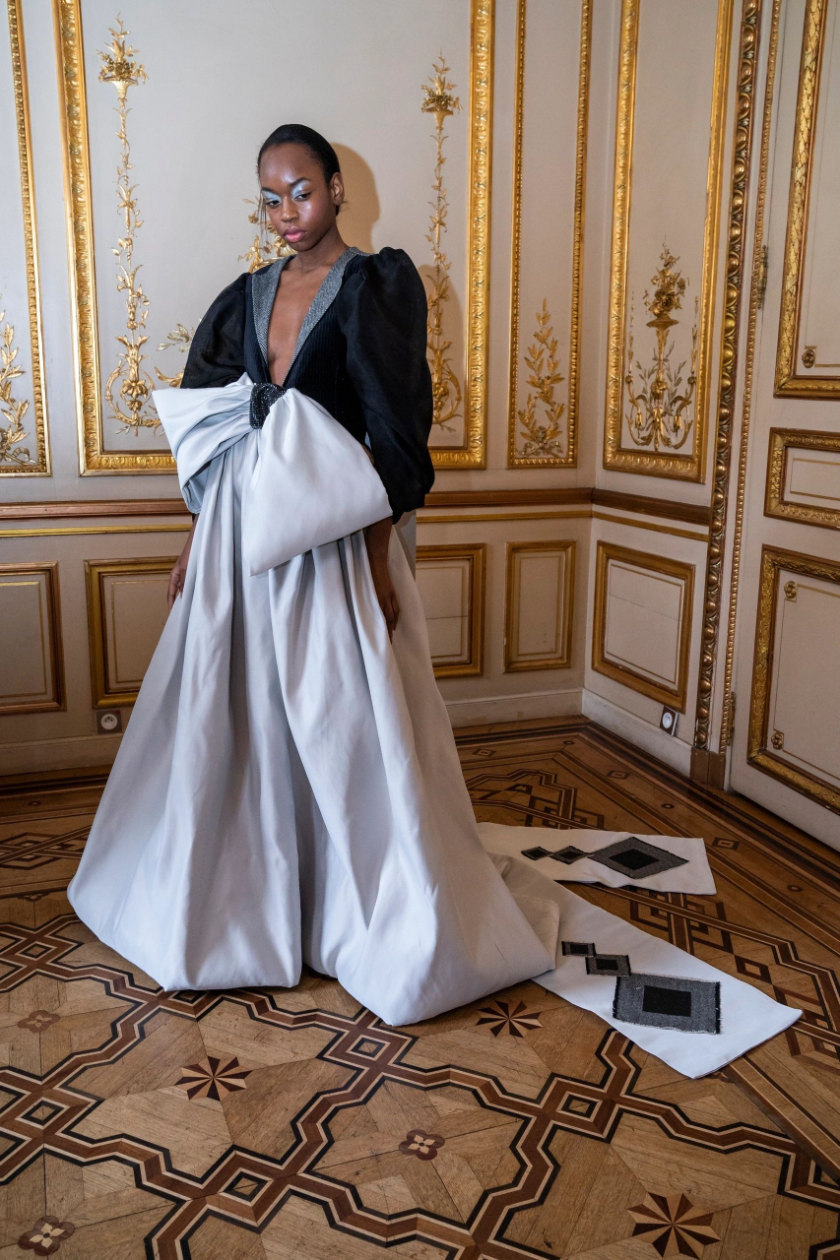
Top and centre: From the Madre collection, spring–summer 2021. Above: From the Peace over Violence collection.
There’s a noticeable difference between designers on the US east coast, namely New York, and those on the west. Over the years, Los Angeles has come on this magazine’s radar with its fashion weeks, but a media ecosystem overly obsessed with film and television can make it harder to uncover the true fashion gems in the city. But when they appear, invariably they have a fascinating story.
Los Angeles-based Uriel Saenz is the real deal: a designer who learned to sew from his late mother, who showed him how to use an industrial sewing machine when he was five, and whom he stayed close to as she battled cancer. As a result, he understands construction and the possibilities of fabric. He has shown in the major fashion centres, with collections that promote causes close to his heart. Like a true artisan, he is as comfortable sewing himself as he is creating. And he dares to design differently, bringing in a Latin sensibility with luxurious fabrics and unconventional cuts.
Saenz is also multifaceted with interests in fragrances, into which he extended his brand, and in media.
His father, a sewing machine technician, met his mother at a production house in the 1970s, with a fateful meeting: her hair was caught in a machine he was repairing. By the 1980s, they were behind a major production house in California where the young Uriel played with fabric and was inspired as a child.
However, globalization began affecting his parents’ business. He recalls, ‘Growing up, I saw production leave from the US to China during the Reagan years. I recall that vividly since that’s when we had to downsize and take all the equipment into our home and started making the remaining factory orders and samples from there. My entire family had a salty feeling about the fashion industry. It wasn’t the golden ticket it once was.’
Needing time to consider his future, Saenz joined the US Marine Corps. ‘Plus the GI Bill was my ticket to college. It ended up being one of the most formative opportunities life has handed me.’
He enjoyed his life in the Corps, but back then he could not be openly gay. ‘I did not want my daughter to think I was ashamed of the person I was, I could not possibly stay in and live in a lie that would consume me every day. I served honourably, but had to exit under the “don’t ask don’t tell” policy of that time.’ He felt he had accumulated enough discipline and training that he could marry with an innate creative talent, and decided to start his own label in 2005.
Saenz took quality extremely seriously from day one, not just because of his time in the Corps, but because of his mother’s strict quality control in the family business in the 1980s. He also believed it was important to demonstrate social responsibility from day one, and consistently incorporated social issues into his collections.
He tells Lucire, ‘More than just about beauty, my work is about bringing awareness to social issues affecting the world. I like what I do to have a purpose while at the same time making us feel and look good. I believe in this new-era luxury, and wealth is flexed by what you do for humanity and the world.’ When asked what his inspirations are, he says, ‘My collections are inspired by a multitude of social issues. it's also a fusion of cultures from around the world.’
Those social issues are numerous. At one show in Paris, ‘I have presented a collection called Peace over Violence, bringing awareness to domestic violence and [asked] people who follow me to make a donation to those organizations.
‘In my next Paris showcase, I focused on mental health with a collection called Reflections. I also am the creator of the Resist Dress, which was made in support of LGBTQ people who are serving or, like me, have served in the military.’
Saenz is a deeply spiritual man, one who believes in and loves his family—that has been very apparent in the inspirations he cites in his work. including a tribute to his late mother in a collection he showed in Milano, simply entitled Madre. ‘Up to her last days we talked about the dress I would make her to walk through the gates of heaven,’ he writes on his own website. He is not a man who shuns his feelings and his bond with his mother remains strong.
He also believes Los Angeles has an edge as a fashion centre, and that it ranks above New York. ‘People take chances in LA. It is an experimental city. It’s the city that leads globally as the style capital of the world. LA is open to freedom of expression; it’s a city that allows the good, the bad, and the ugly, aslong as it’s uniquely your own.
‘In LA, creativity flows without judgement, it’s where people come to get inspiration. From the homeless of skid row, the inner-city teens, to the preppy suits of Beverly Hill, each offers very personalized style executions—that’s what makes the world take notice. The eclectic nature of LA breeds creativity. New York is New York.’ The next city that Saenz rates highly for its diversity and its collision of cultures that result in positive, creative outcomes is London.
However, despite his location, Saenz does not consider celebrity endorsements a must—quite the opposite. ‘I think it’s easy to be allured by the flashiness of Hollywood when you are not from here. I believe the work should speak for itself. I like my designs to be the celebrity. I don’t like when attention is taken away from my work over who’s wearing it,’ he says.
He adds, ‘That part of the business has become toxic for designers, everyone wins but the designers. My clients are trend-setters themselves and don’t need the hype factor, they are the early adopter.
‘Sadly though, I have found that some industry media are attracted by what the celebrity wears more than what designers are doing. Suddenly a random T-shirt is being talked about by fashion media while they overlook lifelong designers, who are working hard on our craft to tell stories and create artistic messaging through our work. I sometimes feel it’s also super-disrespectful to the entertainer who wants to be celebrated for their work.’
After showing in Paris for the first time, Saenz was offered the opportunity develop his own fragrance. ‘I sat on the idea and started to develop with the idea with the lab. Originally, I wanted to make it a gift to my mother who was still living. She passed in the process and in became a tribute project. The name Muñeca (which means doll in Spanish) was my mother’s nickname, and it was the perfect name for a fragrance that helps you feel beautifully glamorous.’
Despite having his fingers in different pies, Saenz says he is very good with his time management, with a clear strategy of what he wishes to do going forward. ‘I have created different models to take me through my growth process, it’s very easily scalable. It all is ultimately tied to revenue, I’ve had extensive experience scaling multifunctional projects and teams at a moment’s notice. In addition, I was a single parent and everyone knows single parents are the example of time management and multitasking. I really just keep my eye on revenue, opportunity and scaling flexibility with each thing I take on.’
He puts his longevity—over 15 years with his own brand—down to a commitment to his own authenticity. ‘I have never been racing. Maybe that could result in the product lifeline extending. Plus, I’m constantly reinventing myself and reevaluating my professional and personal path. I don’t see transitions as failures, especially when they are well thought out. I see these moments as opportunities. I will say though, that I don’t consider myself a fashion insider, at times I even feel I’m not even in the industry. Maybe its because I don’t play by any formal rules or established paths. It allows be to be genuine and true to my work.’
As to what’s next, Saenz demonstrates just how prepared he is for whatever life brings. ‘[I’m] open to whatever path the universe has in store. From a young age, I knew I wanted to experience life. My career’s complexity, even though it has not been a typical path by any means, … has blessed me with extensive knowledge both intellectually and spiritually.’ We cannot wait to see what Uriel Saenz creates next, especially with his country’s—with which he shares his initials—many changes, as he remains true to himself and what he stands for. •
Jack Yan is founder and publisber of Lucire.
Related articles hand-picked by our editors
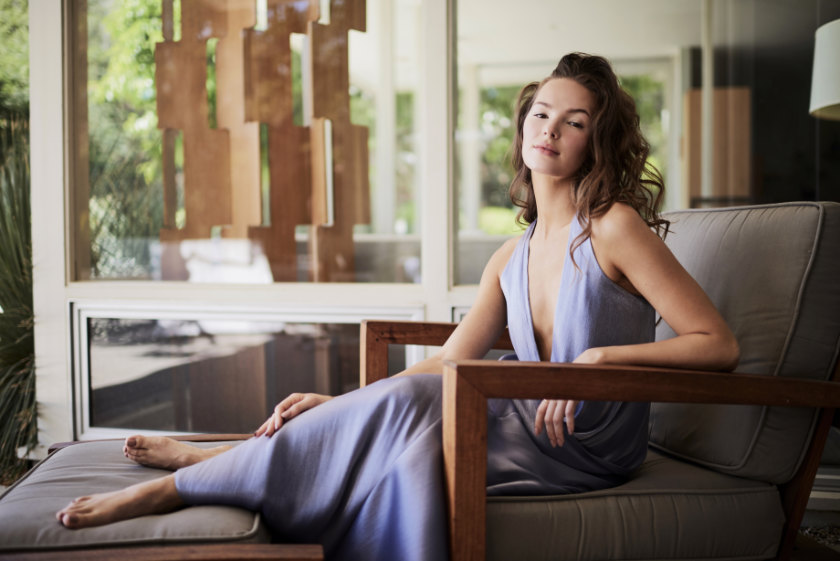
Out of the spotlight
Loin des feux de la rampe
There is nothing that Los Angeles-based designer Peter Cohen wants more than knowing his clients shine, feeling fabulous and confident wearing his work
Il n’y a rien que le designer Peter Cohen, basé à Los Angeles, désire plus que de savoir que ses clients brillent, se sentent fabuleux et confiants en portant son travail
First published in the September 2022 issue of Lucire KSA
Dans le numéro du septembre 2022 de Lucire KSA
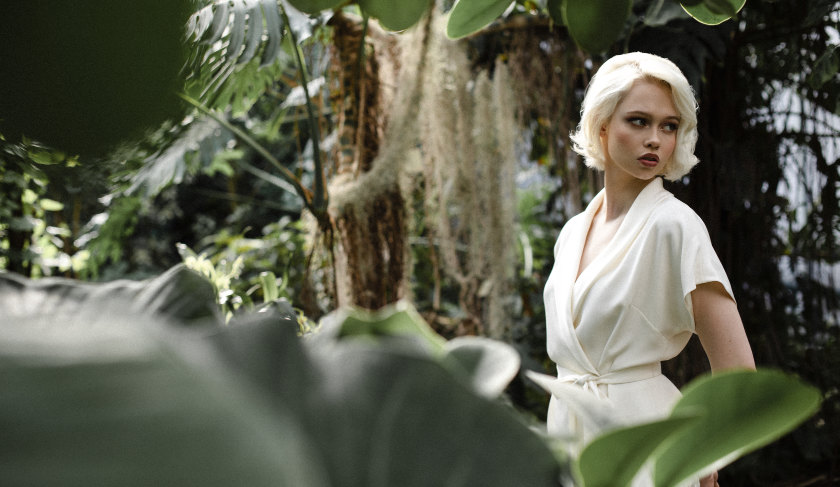
Thoughtful and timeless
Réfléchi et intemporel
Slow fashion, elegance, and exceptional quality come together in Estonia with Marimo, the label founded by designer Mariliis Pikkar. Jack Yan interviews her
Slow fashion, élégance et qualité exceptionnelle sont réunis en Estonie avec Marimo, le label fondé par la créatrice Mariliis Pikkar, interviewée par Jack Yan
Photographed by/photographié par Julia Astok
From issue 45 of Lucire
Dans le 45e numéro de Lucire
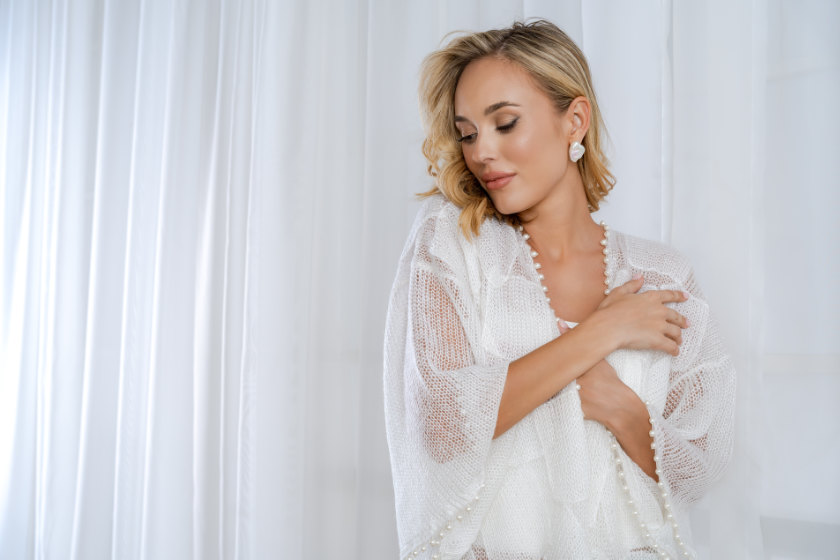
Born in Riyadh
Né à Riyad
Kayane Mahrejian created her sustainable label, Kaiane Designs, when searching for a wedding dress, and now capably multitasks between designing and working as one of the engineers at NEOM. Jack Yan speaks with her
Kayane Mahrejian a créé son label durable, Kaiane Designs, lors de la recherche d’une robe de mariée, et est désormais capable d’effectuer plusieurs tâches entre la conception et le travail en tant qu’ingénieur chez NEOM. Jack Yan parle avec elle